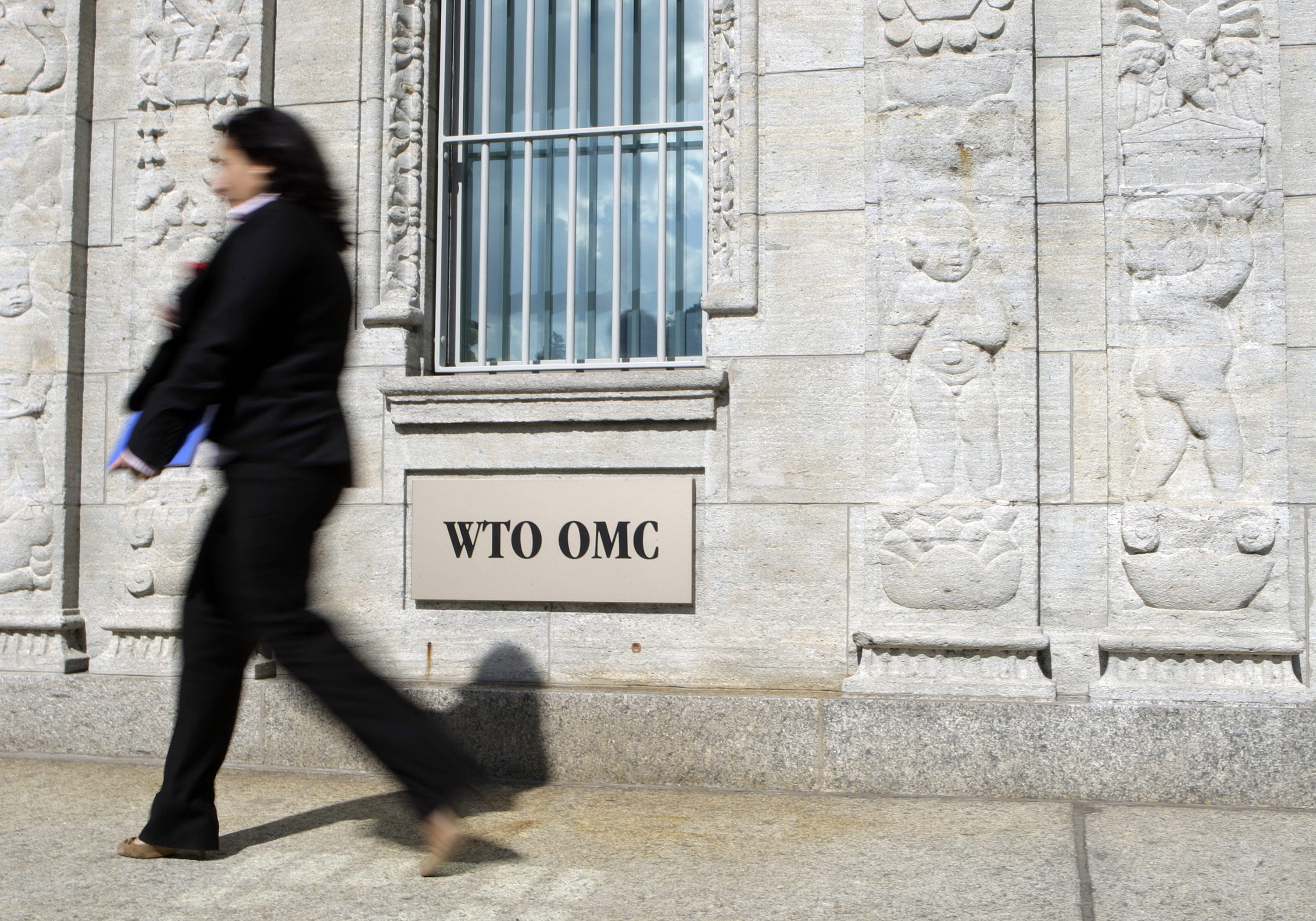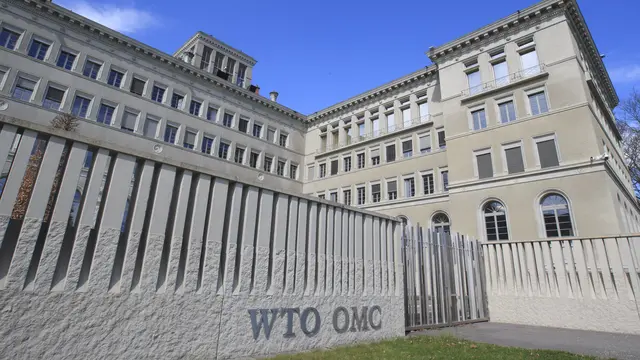
The World Trade Organization headquarters in Geneva, Switzerland. /Xinhua
Editor's note:
Matteo Giovannini is a finance professional at the Industrial and Commercial Bank of China in Beijing and a member of the China Task Force at the Italian Ministry of Economic Development. The article reflects the author's views, and not necessarily those of CGTN.
China, the European Union (EU) and other 17 World Trade Organization (WTO) members last week issued a joint statement with the aim to unblock the appointment of WTO Appellate Body members, due to the ceased function in December of last year when the United States made obstruction in the appointment of new judges.
According to the new arrangement called Multi-Party Interim Appeal Arbitration Arrangement (MPIA) a pool of 10 judges are going to be selected by the WTO country members that are part of this initiative with the aim to maintain the essential principles of the WTO dispute settlement system.
The idea to develop an interim appeal arbitration body was announced in January of this year at the World Economic Forum (WEF) in Davos and in a bit more than a quarter has brought together China, the European Union, Canada, Australia, Singapore, Brazil, Chile, Colombia, Costa Rica, Guatemala, Iceland, Mexico, New Zealand, Norway, Pakistan, Switzerland, Ukraine and Uruguay.
It is important to underline that the possibility of establishing an entity such as the MPIA is basically provided by the WTO legislation itself where, at the Article 25 of the Dispute Resolution Understand, the Member States are allowed to voluntarily submit themselves to forms of international arbitration to direct any disputes that may arise between them.
The formation of an interim appeal by such a large number of WTO countries undoubtedly shows not only the desire among members to continue to rely on trade multilateralism but also the ability to look at the bigger picture avoiding the temptation to focus on domestic needs given by pure opportunism.
Moreover, by supporting this new initiative China shows the world its responsibility as a leading actor on the global stage in support of a multilateral global system and the presence on board of the European Union with its 28 countries demonstrates the importance that trade between China and the EU is going to play in this century and that could eventually lead to the convergence of interests in the highly anticipated Eurasia mega continent where most of global trade is effectively going to take place.

A view of the WTO headquarters in Geneva, Switzerland, June 22, 2007. /AP
On the contrary, the United States, that remains outside this initiative together with countries such as India and Japan, maintains faith to its actions towards an anti-globalized world that the international community has been able to see from the early days of U.S. presidency in 2016 when the new commander in chief made the decision to withdraw from the Paris Agreement and later on threatened to destroy the NATO by pulling out the U.S.
China in these last few years has dramatically increased its role on the global stage by taking important initiatives towards multilateralism and global trade. The setting up of the Asian Infrastructure Investment Bank (AIIB) and the launch of the massive Belt and Road Initiative (BRI) are just two examples of China's proactiveness and the decision of U.S. and Japan to not join the AIIB and by India to not join the BRI, avoiding even to attend the biennial summits, should make it clear the different approach these countries have towards the 21st century.
I strongly believe that when individual people or countries are part of a club it is normal to disagree on some issues and it is leaders' job and duty to take responsibility to sit at a negotiation table and discuss with other members on how to solve conflicts for the common prosperity and satisfaction.
The major mistake countries and leaders could do in a similar situation is to refuse an open invitation to join a club missing the opportunity to influence the discussion from the inside by raising concerns in front of other members. The decision to remain outside the decision rooms and far from the negotiation tables is an act of irresponsibility that could lead the "rebel" countries to be labelled as unreliable and whose global reputation could be undermined in the long term.
The decision made in Davos certainly represents a temporary commitment that serves as a bridge to overcome WTO's immediate short-term challenges by guaranteeing that trade is based on enforceable rules and by maintaining a continuous trade flow to prevent the increasing protectionism coming from the U.S.
In this sense, even though the MPIA ensures that participating WTO members continue to have access to an impartial and high quality dispute resolution system, member countries have the duty to focus their attention on finding a solution to long-term concerns regarding the role and the functioning of the WTO and in order to be successful it is necessary that all members show an effort to go in the same direction.
In the absence of a commitment from all WTO members, the establishment of multilateral initiatives such as the MPIA is certainly welcomed by those countries that believe in a fair trade at a time when globalization should be incentivized instead of ostracized and the decision of China, EU and other 17 WTO countries represents an act of faith in the preservation of a system where the international trade law is observed and respected by all members.
(If you want to contribute and have specific expertise, please contact us at [email protected].)
 简体中文
简体中文

